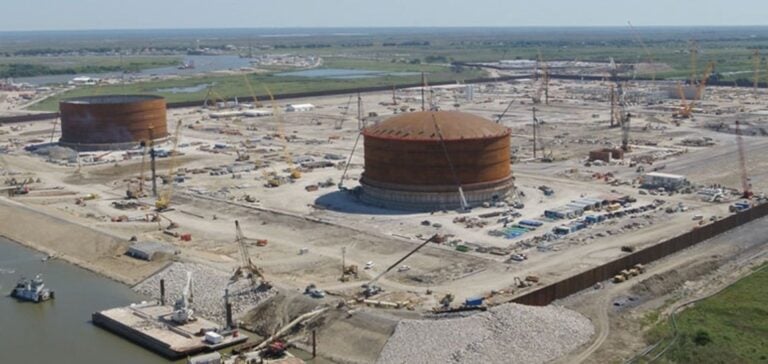The Federal Energy Regulatory Commission (FERC) recently approved the construction of the Calcasieu Pass 2 LNG plant in Louisiana. This project, developed by Venture Global LNG, has met with mixed reactions, becoming a sticking point between energy development objectives and environmental concerns. FERC’s decision, taken by a vote of 2 to 1, authorizes the construction and operation of this new LNG plant and the associated 137-kilometer pipeline. Outgoing commissioner Allison Clements disagreed, pointing to the significant greenhouse gas emissions this project would generate, equivalent to those of 1.8 million additional gasoline-powered cars each year.
Environmental and economic impact
Venture Global LNG claims that this multi-billion dollar project is essential for global energy security and the energy transition, as well as creating jobs and stimulating economic growth in Louisiana and the USA. The plant is expected to supply 20 million metric tons of LNG per year to customers in Europe, Japan, China and U.S. exporters. However, environmentalists are strongly critical of the project, arguing that it will reinforce the use of fossil fuels and increase pollution in surrounding communities, while exacerbating global warming. FERC’s decision enables Venture Global LNG, based in Alexandria, Virginia, to become the second largest LNG exporter in the USA, behind Cheniere Energy.
Regulatory context and reactions
This project is the first to receive construction authorization since the Biden administration suspended future LNG export permits in January to examine their economic and environmental implications. This review should be completed after the US presidential election in November. Bill McKibben, environmental activist and distinguished academic at Middlebury College, called FERC’s endorsement “a travesty for science and environmental justice”, recalling that this summer was the hottest in human history. He stressed the importance of the Biden administration’s decision to pause new permits, seeing it as a crucial defense against projects he considers indefensible.
FERC’s approval of the Calcasieu Pass 2 plant highlights the tensions between growing energy needs and environmental imperatives. As Venture Global LNG prepares to strengthen its position in the LNG market, debates on climate impacts and energy transition strategies continue to polarize players in this key sector.






















